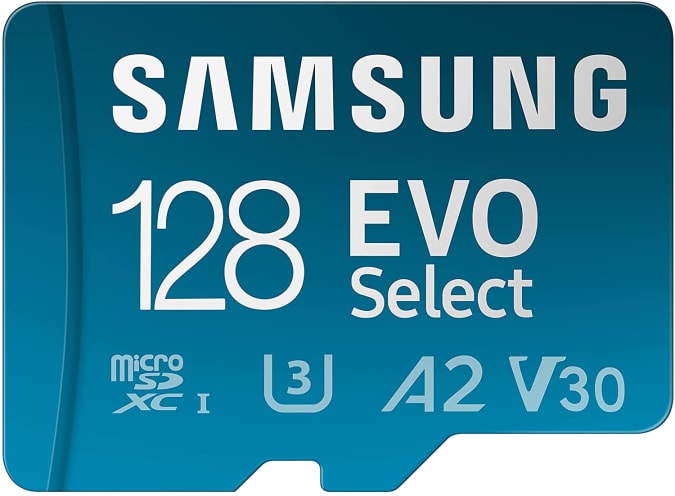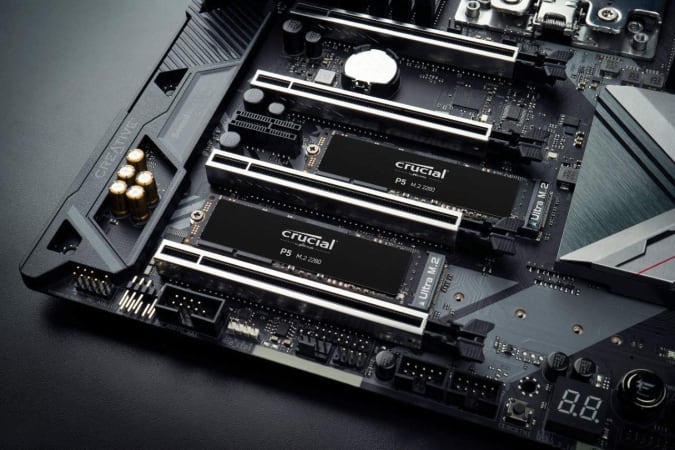Engadget RSS Feed |
- Amazon explains outage that took out a large chunk of the internet
- New IBM and Samsung transistors could be key to sub-1nm chips
- Microsoft fixed a Teams bug that prevented 911 calls on Android
- Sony reportedly planned to bring PlayStation Now to phones
- Twitter asks judge to throw out Trump's lawsuit over ban
- Hitting the Books: How the Silicon Valley mindset damages rural American communities
- Logging library for millions of apps has a serious vulnerability
- A scene from the 'Sex and the City' revival created a PR emergency for Peloton
- Recommended Reading: The real cost of the global chip shortage
- Watch the Blue Origin launch that'll carry Alan Shepard's daughter to space (updated)
- Ford will triple its output for the all-electric Mustang Mach-E
- Mercedes-Benz recalls EQS over error that allowed dashboard video playback while driving
- The FAA will give Bezos and Branson its last astronaut wings
- Bungie responds to report on its lackluster efforts to improve workplace culture
- Twitter reportedly knew Spaces could be misused due to a lack of moderation
- Senate bill would facilitate social platforms sharing data with outside researchers
- Sony buys co-development studio Valkyrie Entertainment
- Analogue will reopen Pocket orders on December 14th
- How a VR startup took the money and ran to the metaverse
- Retro online gaming service Piepacker adds five Atari classics to catalog
- Marvel's 'Eternals' will hit Disney+ on January 12th
- Apple's second-gen AirPods drop to $100, plus the rest of the week's best tech deals
- 'PUBG: Battlegrounds' is going free to play, but ranked mode will still cost you
- 'Banjo-Kazooie' joins the Switch Online Expansion Pack in January
- TCL temporarily pulls Google TV sets from sale over performance issues
| Amazon explains outage that took out a large chunk of the internet Posted: 11 Dec 2021 01:41 PM PST Amazon has explained the Web Services outage that knocked parts of the internet offline for several hours on December 7th — and promised more clarity if this happens in the future. As CNBCreports, Amazon revealed an automated capacity scaling feature led to "unexpected behavior" from internal network clients. Devices connecting that internal network to AWS were swamped, stalling communications. The nature of the failure prevented teams from pinpointing and fixing the problem, Amazon added. They had to use logs to find out what happened, and internal tools were also affected. The rescuers were "extremely deliberate" in restoring service to avoid breaking still-functional workloads, and had to contend with a "latent issue" that prevented networking clients from backing off and giving systems a chance to recover. The AWS division has temporarily disabled the scaling that led to the problem, and won't switch it back on until there are solutions in place. A fix for the latent glitch is coming within two weeks, Amazon said. There's also an extra network configuration to shield devices in the event of a repeat failure. You might have an easier time understanding crises the next time around. A new version of AWS' service status dashboard is due in early 2022 to provide a clearer view of any outages, and a multi-region support system will help Amazon get in touch with customers that much sooner. These won't bring AWS back any faster during an incident, but they may eliminate some of the mystery when services go dark — important when victims include everything from Disney+ to Roomba vacuums. |
| New IBM and Samsung transistors could be key to sub-1nm chips Posted: 11 Dec 2021 01:30 PM PST IBM and Samsung claim they've made a breakthrough in semiconductor design. On day one of the IEDM conference in San Francisco, the two companies unveiled a new design for stacking transistors vertically on a chip. With current processors and SoCs, transistors lie flat on the surface of the silicon, and then electric current flows from side-to-side. By contrast, Vertical Transport Field Effect Transistors (VTFET) sit perpendicular to one another and current flows vertically. According to IBM and Samsung, this design has two advantages. First, it will allow them to bypass many performance limitations to extend Moore's Law beyond the 1-nanometer threshold. More importantly, the design leads to less wasted energy thanks to greater current flow. They estimate VTFET will lead to processors that are twice as fast and use 85 percent less power than chips designed with FinFET transistors. IBM and Samsung claim the process may one day allow for phones that go a full week on a single charge. They say it could also make certain energy-intensive tasks, including cryptomining, more power-efficient and therefore less impactful on the environment. IBM and Samsung haven't said when they plan to commercialize the design. They're not the only companies attempting to push beyond the 1-nanometer barrier. In July, Intel said it aims to finalize the design for angstrom-scale chips by 2024. The company plans to accomplish the feat using its new "Intel 20A" node and RibbonFET transistors. |
| Microsoft fixed a Teams bug that prevented 911 calls on Android Posted: 11 Dec 2021 12:11 PM PST You'll want to quickly update Microsoft Teams if you're an Android phone user. According to former XDA editor-in-chief Mishaal Rahman, Microsoft has fixed a Teams bug that led to failed 911 calls on devices using Android 10 or later. Reddit user KitchenPicture5849 discovered that having Teams installed, but not signed in, would prevent emergency calls from going through. The phone would say a call was active and ring once, but never properly initiate the connection — call logs would show nothing. Rahman and friend Kuba Wojciechowski pinpointed the cause. While all Android calling apps will try to create a PhoneAccount class instance in the operating system, Teams was creating instances every time a user started the app "cold" — that increased the chances of a sorting problem that stopped calls from going through. Google talked to the Reddit user and revealed that both the company and Microsoft were planning fixes. In addition to the Microsoft patch, Google is delivering an Android platform update on January 4th that should address its side of the problem. You can delete and reinstall Teams to clear any excess PhoneAccount instances, and staying logged in should prevent any mishaps. Google said this only affected a "small number of devices." The issue, however, was the severity. This could have blocked someone from making a life-saving call through no fault of their own. |
| Sony reportedly planned to bring PlayStation Now to phones Posted: 11 Dec 2021 10:18 AM PST Microsoft wasn't the only big console maker hoping to bring its games to phones. The Verge said it has obtained a document from Epic Games' lawsuit against Apple indicating the iPhone maker had learned Sony was planning a "mobile extension" of PlayStation Now in 2017. The service would stream over 450 PS3 games at first, and follow up with PS4 titles. Apple mentioned the PlayStation Now expansion as it was in the early stages of developing Apple Arcade, its answer to Sony's service as well as Xbox Game Pass. While Arcade didn't launch until 2019 and still doesn't include streaming, Apple saw PlayStation Now as indicative of a broader shift toward gaming subscriptions. Provided Apple's scoop was accurate, it's unclear why Sony still isn't streaming games to smartphone owners. A hybrid of PlayStation Now and PlayStation Plus is reportedly due in spring 2022, but the relevant rumor didn't make mention of mobile access. Sony has already declined to comment. There may have been a few factors at work. Sony might not have wanted to test Apple policies effectively blocking cloud gaming apps — Microsoft had to use the web to get around that limitation. There are also familiar technical challenges, such as adapting gamepad-focused titles to touchscreens or ensuring reliable streams on cellular connections. Either way, this suggests Sony was at least considering a more ambitious version of PlayStation Now than the service you see today. |
| Twitter asks judge to throw out Trump's lawsuit over ban Posted: 11 Dec 2021 08:53 AM PST It won't surprise you to hear Twitter is fighting former President Trump's lawsuit over his ban. Bloombergreports Twitter has asked a judge to dismiss the suit as it allegedly misinterprets and threatens the company's First Amendment free speech rights. The social network noted it was a private company that isn't obligated to host speech it doesn't like, and that Trump repeatedly violated the rules he agreed to when he chose to use the service. A forced ban reversal would challenge "bedrock principles of constitutional law," Twitter said. Moreover, Twitter argued its editorial choices related to basic public concerns, including threats to a peaceful White House transition as well as statements that could foster "further violence." The company merely flagged Trump's tweets as misleading in the run-up to the January 6th Capitol assault, but banned him after he continued. Lead attorney John Coale has contended Twitter is a "state actor" as Section 230 of the Communications Decency Act supposedly equates to a subsidy that forces it to honor the First Amendment like the government does. Biden's Justice Department has objected to this interpretation in a court filing, however, stating that Section 230 is only meant to protect against liability, not regulate the speech of officials like the ex-President. Trump isn't waiting for a return to Twitter, Facebook and other social networks. He recently launched Truth Social in a bid to enable himself and other conservatives who've felt silenced by tech companies. If Twitter succeeds in its dismissal request, though, Trump won't have much of a choice but to give up his once-preferred platform. |
| Hitting the Books: How the Silicon Valley mindset damages rural American communities Posted: 11 Dec 2021 08:30 AM PST America has always been a nation segregated into haves and have-nots with rampant inequity a seemingly natural aspect of our social order — the motif impacting towns and cities just as starkly as the people who live in them. But it doesn't have to be this way, argue authors UC Davis Professor, Stephen Wheeler, and Temple University Associate Professor, Christina Rosan. In their new book, Reimagining Sustainable Cities: Strategies for Designing Greener, Healthier and More Equitable Communities, Wheeler and Rosan examine the steps municipalities across the country have taken in recent years in response to climate change, as well as their social and sustainability shortcomings, offering community-based solutions to ensure that urban development in the 21st century equitably raises the standard of living for all residents, not just for the rich. In the excerpt below, the authors take a look at the myriad trials faced by residents of eastern Kentucky, a once thriving pastoral region ravaged by the intractable march towards modernization and distillation of wealth to the select few. University of California Press Copyright © 2021 by Stephen M. Wheeler and Christina D. Rosan. Reprinted with permission from University of California Press. While this book is about reimagining sustainable cities, we pause here to connect sustainable cities with the larger national and international context in terms of spatial inequality. We live in a world that is deeply interconnected. If we want sustainable cities, we need to work on reducing spatial disparities between cities and rural areas, and between different regions worldwide. Linkages between communities need to be recognized, and resources shared and equalized. Situations must be ended in which some regions exploit others by giving them the unwanted by-products of production, such as pollution, waste, and labor exploitation, while simultaneously moving resources and profits from poor regions to rich ones. In and around the towns of eastern Kentucky, where Stephen Wheeler's ancestral family is from, people of English and Scottish descent lived for many generations as self-sufficient farming families. That way of life changed in the second half of the twentieth century. Better roads, electricity, and telecommunications connected Appalachia with the rest of the world. Urban job opportunities lured away the young. Farming families became part of the cash economy and acquired new desires for processed foods, appliances, motor vehicles, and personal accessories. But hill farms didn't generate enough cash to buy such things, especially with rising federal subsidies for agribusiness in other parts of the country. So the people of eastern Kentucky became designated as poor and came to see themselves that way. Environmental problems grew as well. Giant bulldozers scraped away hilltops and extracted coal, adding this region to the long list of others worldwide suffering from the "resource curse." Runoff from coal mining poisoned wells and polluted waterways. Coal jobs left as quickly as they had come, leaving many even poorer. A new, more globalized retail economy brought first Kmart and then Walmart, putting family-owned stores out of business. Fast-food outlets proliferated. But the new service economy jobs didn't pay much. To make better money some people began growing marijuana in hard-to-reach locations in the hills. Drug use, alcoholism, and obesity spread. Fundamentalist religion gained adherents and combined with Fox News (starting in the 1990s) to promote reactionary political values. A region that had been Democratic until the late twentieth century now helped elect US Senate majority leader Mitch McConnell (R-KY). McConnell in turn played one of the largest roles in thwarting progressive legislation from Barack Obama's administration, supporting Donald Trump's presidency and fueling the rise of populism in the US. If this tale of decline were one isolated example, it might not matter much. But spatial inequality persists and spreads worldwide. Some left-behind communities are rural. Others are urban. Entire countries are stuck in poverty due to the legacy of military or economic colonization. Spatial inequality is a core challenge to the development of more sustainable cities. Every community needs to be able to thrive, not just certain favored ones within a highly unequal global system. Instead of engaging in a zero-sum approach to development, with winners and losers, communities need to support one another so that all improve their quality of life and sustainability. The so-called winners of today's global economic competition have their own problems. At the other end of the spectrum from Appalachia is Silicon Valley. This forty-mile corridor in the San Francisco Bay Area is an economic dynamo envied the world over. Covered by orchards and agricultural fields in the 1950s, this beautiful area was known as "Valley of Heart's Desire." Now no orchards remain, and the region is a congested sprawl of poorly connected office parks, subdivisions, malls, and commercial strips. Incomes are high, but the price of a home is nearly five times that in the US as a whole. Many residents cannot afford housing near their jobs and so endure lengthy commutes or are housing insecure. Social inequality, traffic congestion, air pollution, and greenhouse gas emissions expanded greatly during the past fifty years, reducing the quality of life in the region and contributing to global warming. The Silicon Valley ethic of "move fast and break things" has created dynamic companies, unprecedented technology, and great wealth for a few. But the new gig economy pioneered there often operates at the expense of workers and the environment. It often produces an enormous concentration of wealth that comes from the exploitation of others. One study found that one-fifth of San Francisco Uber and Lyft drivers earned virtually nothing when their full expenses, including things such as health insurance, were accounted for. The tech industry has also been heavily criticized for sexual harassment during the MeToo movement and racism during the Black Lives Matter movement. The combination of individualism, predatory capitalism, toxic masculinity, and lack of concern for the common good that Silicon Valley represents works strongly against a sustainable and equitable future. Similar problems of unequal development exist in other successful urban areas worldwide, including Shanghai, Beijing, Tokyo, Bangalore, Singapore, Toronto, London, Amsterdam, Paris, and Tel Aviv. Though among the world's economic success stories, on many dimensions of sustainability they are failures. The growing core-periphery disparities that produce left-behind communities and "sacrifice zones" on the one hand and wealthy but unsustainable and highly unequal job centers on the other are at the heart of recent global development patterns. Let us imagine instead a world where we are not content with the concentration of wealth and opportunity in a small number of global cities; where all communities have affordable housing and provide a decent quality of life; where cities meet the needs of people locally and regionally but do not drain wealth from other parts of the world; where no areas are left behind in the transition to a green economy, their populations increasingly alienated, despairing, and vulnerable to unscrupulous politicians and warlords; and where social dimensions of sustainability are well served everywhere. Sources of the ProblemToday's spatial inequity problems have long historical roots, illuminated by literature in fields such as economic geography, sociology, and environmental history. One starting point is physical geography. Some parts of the world have more fertile soils than others, more abundant mineral resources, more useful plant, animal, and fish species, and/or more benign topography and climate. Other places have been strategically well located to serve as trading centers and market towns or have been easy to defend against attack. Such communities have been able to accumulate modest amounts of wealth and power. The "chessboard" of geographical wealth is constantly shifting and with global warming is likely to shift in even greater ways in the future. However, in other cases spatial inequities have resulted from military, religious, cultural, political, and/or economic systems that further centralize power and wealth. Typically these have drained resources from the periphery to the core of empires. Many parts of the world still suffer the legacy of colonization. Local traditions and cultures were disrupted, peoples were exploited, racism was institutionalized, ecosystems were harmed, and corrupt, colonizer-friendly governments were installed following independence. The damage has been so profound and long-lasting in many places that reparations may be appropriate. The need for climate justice may likewise call for reparations and repayments. Twentieth-century economic development philosophies exacerbated spatial inequality on the assumption that economic globalization was to everyone's long-term benefit. Various versions of "growth pole" theory, originating in the 1950s, sought to focus business development in particular geographical locales within countries on the assumption that this would leverage economic development in other parts. Such wider-scale progress was rare; growth poles instead often channeled resources to local elites, created isolated business enclaves, and harmed the environment. The municipal economic development practice of chasing branches of multinational corporations has likewise undermined prospects for a more stable long-term economic base in cities worldwide. This "race to the bottom" competition leads suburbs to compete to host the newest shopping mall, central cities to compete for corporate headquarters, and states or countries to lower their environmental and labor standards to attract multinational corporations. However, the resulting businesses often don't provide the expected number of jobs, pay the decent wages promised, or stay more than a few years. As Margaret Dewar has pointed out in her well-titled article "Why State and Local Economic Development Programs Cause So Little Economic Development," politicians have an incentive in the short term to appear to be generating jobs by attracting well-known companies but little incentive to take into account long-term economic or environmental sustainabilIty. A recent example of the extreme lengths that municipalities will go to in order to attract development can be seen in the global competition for the second Amazon headquarters. The Bretton Woods framework of post–World War II development assistance only deepened global spatial disparities, creating what economist Andres Gunder Frank termed "the development of underdevelopment." Agencies such as the World Bank and the International Monetary Fund loaned funds to developing countries for megaprojects that created wealth for elites but left others poor and displaced, while countries accumulated enormous debt to lenders in the Global North. National governments focused on what sustainability-oriented NGOs refer to as "extreme infrastructure." These dams, power plants, industrial zones, and large-scale agricultural projects sought to jump-start an export-oriented form of economic development that was often environmentally harmful and funneled capital created by Third World labor and resources into First World bank accounts. Yet another source of disparities has been the structural adjustment policies that neoliberal governments in wealthy nations insisted upon as a condition for international assistance during the past forty years. These require developing countries to take actions such as cutting social programs, privatizing public assets such as utilities and railroads, reducing barriers to foreign investment, and lowering taxes on the wealthy. The effect has been to make life harder for the poor while enriching elites and international corporations. It is increasingly clear that structural adjustment policies need to be discontinued and policies that promote spatial equity put in their place. Finally, the offshoring of manufacturing from wealthy nations to low-cost and less regulated parts of the globe during the past half century has had complex effects on spatial disparities. It has impoverished the US Rust Belt as well as the British Midlands, leading to the growth of right-wing populism in both places. Meanwhile, it has helped fuel the rise of megacities and megaregions in the developing world, leading to massive internal migration and expanding economic disparities between those urban areas and the countryside. Undoubtedly, these global economic shifts have improved quality of life for many. But they have harmed others, disrupted societies, contributed to the climate crisis, and widened the gulf between rich and poor communities (figure 7). UC Press Although spatial disparities are still expanding in many places, there is hope for the rebirth of left-behind cities and regions. Manchester, UK, the first industrial powerhouse in Europe, lost much of its manufacturing in the middle of the twentieth century but has since rebuilt itself by focusing on culture, education, physical regeneration, and its geographical role as a transportation center. The US steel capital of Pittsburgh, Pennsylvania, after losing 350,000 industrial jobs in the 1980s, reinvented itself as a center of renewable energy, health care, and education. Even the long-declining hulk of Detroit, one of the most hollowed-out American cities, is showing signs of a turnaround. Examples such as these indicate the possibility for left-behind places to rebound. But all of these cities had assets to start with, including a strong identity and an active elite that led revitalization efforts. Other communities and regions don't have such advantages. And the pervasive problems associated with spatial inequality affect wealthy as well as declining places, necessitating holistic and imaginative solutions at higher levels of governance. |
| Logging library for millions of apps has a serious vulnerability Posted: 11 Dec 2021 07:55 AM PST A vulnerability called Log4Shell found in open-source logging library Log4j leaves millions of devices vulnerable to attacks. As The Verge notes, apps and services keep a record of all the events that happen while they're running, giving them a way to analyze how their program is performing and to figure out what went wrong in case of errors. Log4j happens to be a popular and widely used logging library, and even popular cloud services like Steam and iCloud, as well as apps like Amazon, Twitter and Minecraft are reportedly vulnerable to attacks exploiting Log4Shell. According to Ars Technica, it first came to light after Minecraft websites started reporting about a vulnerability allowing hackers to execute malicious code in the game. It became clear soon after, though, that the problem doesn't affect Minecraft only. Security researcher Marcus Hutchins, who helped stop the spread of the WannaCry malware, called the vulnerability "extremely bad" since millions of applications use Log4j for logging. Bad actors could use it to remotely execute codes on servers, directing them to download and run malware that would compromise companies' and people's data. Worse, it's pretty easy to exploit and could be triggered simply by posting messages. Hutchins said that in the case of Minecraft, attackers were able to execute code remotely by posting a message on the chatbox. In a blog post, app security company LunaSec said triggering the vulnerability in Apple's servers is as easy as changing an iPhone's name. Log4j has already issued a fix for the vulnerability, and affected services like Minecraft and Cloudflare have already rolled out patches to protect users. Those running their own networks with Log4j may also want to patch their systems at the soonest possible opportunity if they can. |
| A scene from the 'Sex and the City' revival created a PR emergency for Peloton Posted: 11 Dec 2021 07:20 AM PST This post contains a major spoiler for the first season of 'And Just Like That.' Peloton is grappling with another media crisis in 2021, although this one is decidedly... stranger. As The Vergereports, Peloton has raced to defend its signature Bike after a scene in the first episode of HBO Max's Sex and the City revival, And Just Like That, featured the cycling hardware in a less-than-flattering way. The scene depicted Carrie's husband Mr. Big, played by Chris Noth, dying of a heart attack soon after he finished a 45-minute Peloton class on the company's Bike (with real instructor Jess King in a fictional role, we'd add). Peloton is worried viewers might think the Bike was responsible, and not just because the show might hurt sales — the company's stock price plunged between December 9th and December 10th, and it didn't get much better by the weekend. In a statement, Peloton health and wellness advisor Dr. Suzanne Steinbaum argued that Mr. Big's death likely occurred despite the Bike, not because of it. Big lived an "extravagant lifestyle" that included drinking, smoking and a steak-filled diet, and he'd even had a cardiac incident in SATC's sixth season. If anything, Dr. Steinbaum suggested, Big's riding might have "helped delay" his heart attack. Peloton also said it was caught off-guard. Spokesperson Denise Kelly toldBuzzFeed News the company was aware an HBO-purchased Bike would be in the episode and that King would portray an instructor, but "confidentiality reasons" prevented it from learning about the tragic plot point until the And Just Like That premiere. This likely won't significantly dent Peloton's sales figures. Still, this probably isn't the publicity the firm wanted as it grapples with a treadmill recall and stiffer competition from rivals like Bowflex, Echelon and NordicTrack. Peloton may have to hope price cuts, a new strength training camera and a loyal following will help it overcome any hesitancy from Sex and the City fans. |
| Recommended Reading: The real cost of the global chip shortage Posted: 11 Dec 2021 07:00 AM PST The world's relentless demand for chips turns deadly in MalaysiaYoolim Lee and Yantoultra Ngui, Bloomberg As COVID-19 rages throughout the world, global supply chains are stretched thin. By now you've heard the conditions created a global chip shortage that has affected many companies. What you probably haven't heard are first-hand accounts of how the push to keep factories open turned tragic for many families. Birds aren't real, or are they? Inside a Gen Z conspiracy theoryTaylor Lorenz, The New York Times Birds aren't real. They've been replaced by drones, used by the US government to spy on us. Meet the latest conspiracy theory that's gaining popularity on Instagram, TIkTok and YouTube. The popular family safety app Life360 is selling precise location data on its tens of millions of usersJon Keegan and Alfred Ng, The Markup Life360 is a popular option for parents to keep an eye on their children via phone location, but the app is selling that data, on both adults and kids, to several companies that peddle such sensitive info to any and all buyers. |
| Watch the Blue Origin launch that'll carry Alan Shepard's daughter to space (updated) Posted: 11 Dec 2021 04:08 AM PST If the weather remains favorable and no technical issues stop it, the New Shepard vehicle carrying six people will be lifting off today at 9:45AM Eastern time. It's Blue Origin's third ever crewed mission and the first time that a flight will be at full capacity with six passengers onboard. One of those passengers is Laura Shepard Churchley, daughter of Alan Shepard who's known for being the first American to go to space. She'll be making the trip with Good Morning America co-host Michael Strahan as guests of the Jeff Bezos-owned aerospace company. The trip's paying passengers are technology-focused venture fund founder Lane Bess and his child Cameron Bass aka MeepsKitten on Twitch, Voyager Space CEO Dylan Taylor and engineer/Starfighters Aerospace volunteer pilot Evan Dick. Blue Origin NS-19 was supposed to make the trip to suborbital space on December 9th, but it was pushed back due strong winds.
The company launched its first crewed spaceflight in July, carrying Jeff Bezos and his brother above the Kármán line. In October it flew William Shatner into space for its second crewed flight. Mission NS-19 isn't only the third crewed Blue Origin flight this year, it's also one of the many across space agencies and private space companies, including SpaceX and Virgin Galactic. As Jennifer Levasseur, a curator at the National Air and Space Museum in Washington, told The Washington Post, it's "the busiest year in human spaceflight." She added: "We're entering a new phase of activity that we've never, frankly, seen before. And it creates a lot of excitement." You can watch the launch and the preparations before it below when broadcast begins at 8:15AM ET. Update 12/11 10:25AM ET: The mission was successful, making this the first time Blue Origin has sent a full capsule to space and back. |
| Ford will triple its output for the all-electric Mustang Mach-E Posted: 11 Dec 2021 02:15 AM PST Ford CEO Jim Farley tweeted that it's been tough keeping up with the "incredible demand" for the company's all-electric Mustang Mach-E, but the automaker's going to try. In the tweet, he said Ford is increasing production of the Mach-E to 200,000 vehicles per year in the US starting in 2022 and in Europe by 2023. That's triple the units the company manufactured in 2021. While Farley didn't detail how Ford plans to make that happen, Automotive News has reported that the company will delay its Explorer and Aviator EVs to make way for Mach-E production.
According to the publication, Ford sent a memo to suppliers telling them that the electric vehicles would be delayed by 18 months. Further, the EVs will no longer be manufactured at Ford's Cuautitlan, Mexico plant, which will now be dedicated to manufacturing the Mustang Mach-Es. The Explorer and Aviator EVs were supposed to be the company's next major EV launch after the F-150 Lightning and were scheduled to start production by mid-2023. The 18-month delay means it won't be rolling off the production line until December 2024 — Ford also has yet to announce which factory will manufacture the new vehicles. Farley previously said the Ford has decided to double its EV output to 600,000 electric vehicles per year by the end of 2023 as part of its efforts to become the biggest EV manufacturer in the US. Back then, Automotive News reported that production will be spread across the Mustang Mach-E, F-150 Lightning and E-Transit. |
| Mercedes-Benz recalls EQS over error that allowed dashboard video playback while driving Posted: 10 Dec 2021 02:49 PM PST Mercedes-Benz has issued a server-side update to fix an oversight that had allowed owners of its EQS EV and recent S-Class sedans to watch video content on the 56-inch MBUX Hyperscreen displays found in those cars while they were in motion. In a National Highway Traffic Safety Administration filing spotted by Consumer Reports editor Keith Barry, the automaker says it found an "incorrect configuration" on its backend server in November that may have been installed on some vehicles. It estimates nearly 227 cars were affected by the oversight. And while Mercedes is not aware of any crashes, it's moving forward with a recall. News of the decision comes in the same week that a report from The New York Times said Tesla recently updated its vehicles to allow passengers to play select games even while their car was moving. "Solitaire is a game for everyone, but playing while the car is in motion is only for passengers," the company's infotainment system says after someone launches the title. It's possible for the driver to bypass that warning and then play the game. It's a feature NHTSA says it's in contact with Tesla about. "The Vehicle Safety Act prohibits manufacturers from selling vehicles with design defects posing unreasonable risks to safety," a spokesperson for the agency told Engadget. In 2019, NHTSA said 3,142 people in the US died in crashes involving distracted drivers. |
| The FAA will give Bezos and Branson its last astronaut wings Posted: 10 Dec 2021 01:55 PM PST Whether or not the average person considers Jeff Bezos and Richard Branson to be explorers of the cosmos after their respective joyrides into the upper atmosphere, they and their crew members have met the Federal Aviation Administration's criteria "astronauts." They're even giving them a little medals! And they'll be the last of their kind ever produced. The administration announced an abrupt end to its Commercial Space Astronaut Wings program today. The 2021 recipients include Bezos and Branson, as well as Star Trek actor William Shatner; since it was created in 2004, the honor has been given to 24 individuals, 15 of whom received their wings this year. Starting January 1, 2022, those who would normally qualify for wings will instead only be recognized on the FAA's website. "The Wings program was created [...] to recognize pilots and flight crew who furthered the FAA's mission to promote the development of vehicles designed to carry humans into space," the FAA wrote. "With three commercial space companies now licensed by the FAA to fly spaceflight participants, and companies conducting operations, [program creator Patti Grace Smith's] vision is largely fulfilled." An ego trip 50 miles up is, arguably, substantively different from spending time on the ISS or landing on the Moon. So while it might gall some to see two guys who already have everything claiming a soon-to-be-extinct bit of space travel memorabilia, keep in mind that it's one of many similar baubles. Astronauts still can be awarded different, arguably nicer-looking wings from each branch of the military, in three different degrees. NASA also produces non-military pins for astronauts, and a separate pins for civilians who take part in missions. If anything, the refusal to gift knickknacks for scientifically pointless exercises in polluting the environment suggests humankind's esteem for real space travel remains untarnished. |
| Bungie responds to report on its lackluster efforts to improve workplace culture Posted: 10 Dec 2021 01:12 PM PST In September, Bungie, attempting to distance itself from former publisher Activision, announced a series of reforms designed to foster increased diversity and inclusion. CEO Pete Parsons said his hope was the studio's efforts would set an example for the wider gaming industry. At the time, it appeared the announcement was a proactive move by Bungie, but now it seems the studio was responding to some of its own inner turmoil. In response to a story from IGN reporting on years of systematic sexism and workplace harassment at the studio, Parsons has published an apology letter. "I am not here to refute or to challenge the experiences we're seeing shared today by people who have graced our studio with their time and talent," he says. "Our actions or, in some cases, inactions, caused these people pain. I apologize personally and on behalf of everyone at Bungie who I know feels a deep sense of empathy and sadness reading through these accounts." He says over the last several years Bungie has made "significant" changes to foster a better workplace. At the top of that list, he notes the studio has removed "bad actors" irrespective of their "tenure, seniority or interpersonal relationships."
That's not something it appears was true of Bungie in the past. In one section of the report, IGN recounts the story of a Destiny narrative lead who threw a chair at a window because "he felt others were ruining his creative vision of the game." That individual reportedly stayed at the company for several years after that incident until he left and was later hired to do contract work for Destiny 2. The report also notes many employees wrote letters to Parsons begging for him to intervene in a variety of workplace issues. He reportedly never responded to those pleas. As things stand today, Parsons says he believes employees whose behavior warranted removal were either fired or they no longer work at Bungie. If new information comes to light, Parsons pledged Bungie would investigate those reports "with integrity." After reiterating the studio's commitment to the reforms it announced in September, Parson's letter turns to Bungie's recent hiring efforts. Over the past five years, he says the number of employees who identify as women or as someone from an underrepresented community has increased to 20.5 percent and 18.6 percent, respectively. In 2021, 31 and 23 percent of the studio's hires were employees who identified as part of those two groups. What he doesn't mention is where those numbers were previously. Without historical data, it's impossible to know how much better Bungie has become at hiring more diverse candidates. While the sexual harassment scandal at Activision Blizzard has dominated headlines in recent months, today's IGN report underscores that there are toxic workplaces across the gaming industry. Harassment and management protecting abusers: these are issues that keep coming up year after year. They're not exclusive to one company because many of them have been built in the same way, and it will take a concerted effort to undo those cultures. |
| Twitter reportedly knew Spaces could be misused due to a lack of moderation Posted: 10 Dec 2021 12:15 PM PST Since Twitter Spaces debuted earlier this year, hundreds of people have reportedly joined live audio discussions led by "Taliban supporters, white nationalists, and anti-vaccine activists sowing coronavirus misinformation." According to The Washington Post, Twitter didn't have the moderation tools necessary to combat bullying, calls for violence and hate speech in Spaces before rolling out the Clubhouse competitor — despite executives knowing that would likely lead to misuse. Spaces doesn't have human moderators or tech that can monitor audio in real-time. It's much more difficult to automatically review audio than text. So far, Twitter has relied on the community to report Spaces they think violates the company's rules. However, if a host uses the feature as a soapbox to share transphobic, racist or otherwise bigoted views (as has reportedly happened), and their audience agrees with them, it seems unlikely that a listener will report the discussion to Twitter's safety team. According to the report, Twitter's technology helped some of these discussions to go viral. Because these Spaces were amassing large audiences, the systems understood them to be popular, and promoted them to more users. Twitter spokesperson Viviana Wiewall told the Post the supposed bug has been dealt with. "Ensuring people's safety and encouraging healthy conversations, while helping hosts and listeners to control their experience, have been key priorities since the beginning of [Spaces'] development," Wiewall told the publication. Wiewall noted that the company is "exploring avenues" in terms of moderating Spaces in real-time, "but it's not something that we have available at this time." The spokesperson noted that Twitter did have some protections in place. It can scan the titles of Spaces to look for keywords that raise red flags, but modified spellings can ensure problematic words bypass the filters. Twitter employees are said to have raised concerns about unmoderated live audio rooms, but some of those who suggested the company should slow down and work on technology to improve safety were reportedly dismissed from or left out of meetings. Leaders forged ahead with the Spaces feature anyway, at least in part to appease investors by speeding up product development and generating more revenue. Since August, hosts who meet certain criteria have been able to charge for access to Spaces, with Twitter taking a cut. The company has been chasing other revenue streams beyond advertising, including newsletters and the Twitter Blue premium subscription. There have been issues with some of those products too. The Tip Jar feature, through which users can send payments to each other as tips, exposed some tippers' home addresses via certain types of PayPal transactions. Engadget has contacted Twitter for comment. |
| Senate bill would facilitate social platforms sharing data with outside researchers Posted: 10 Dec 2021 11:53 AM PST A bill announced yesterday would open social media company data to scrutiny by outside researchers. Sponsored by Senators Klobuchar (D-MN), Coons (D-DE)and Portman (R-OH), it proposes to use the National Science Foundation as the intermediary between sensitive platform information and requests from interested parties. Senate aides, speaking under condition of anonymity to the Wall Street Journal, claim the bill is a direct response to recent disclosures about negative externalities associated with Instagram. Documents shared with the Journal in September indicated Meta (then known as Facebook) had conducted internal studies which found use of the Instagram app was damaging to mental health and body image for some users, especially teen girls. The bill also follows a Senate subcommittee on child safety hearing this Wednesday where lawmakers grilled Instagram CEO Adam Mosseri over these same issues. Many came armed with their own experiences creating dummy accounts meant to mimic teenagers, and the disturbing content the platform pushed these accounts towards, including self-harm and "anorexia coaches." While the proposed bill would apply broadly to large social media companies, Meta has a particularly bad track record regarding disclosure for academic purposes. It managed to taint a raft of ongoing studies by providing incomplete data sets in September. A month earlier it actively deplatformed New York University researchers who were studying misinformation and political ads on Facebook. (Their findings indicated that misinformation flourishes there.) It's too early to know exactly what shape this bill will take should it move forward. But as Senator Richard Blumenthal (D-CT) told Mosseri earlier this week, "the days of self-policing are over." |
| Sony buys co-development studio Valkyrie Entertainment Posted: 10 Dec 2021 10:56 AM PST Sony has acquired Seattle-based developer Valkyrie Entertainment. Financial terms of the deal haven't been disclosed. Founded in 2002, it's best known for providing co-development services to other game studios. In the past, Valkyrie has worked with Sony, Microsoft and Riot to help on titles like God of War, Halo Infinite and Valorant. Before today's announcement, it was working on God of War: Ragnarok with Sony's Santa Monica Studio.
The acquisition was announced by Herman Hulst, the head of PlayStation Studios. "Valkyrie's diverse capabilities will be welcomed by every team at PlayStation Studios as we continue to focus on delivering extraordinary gaming experiences," he said in a statement. For Sony, the deal caps off a year full of studio purchases. In the last 12 months, the company has added Housemarque, Nixxes Software, Firesprite, Bluepoint Games and now Valkyrie Entertainment to its first-party lineup for a total of 17 studios under its banner. Sony used to be a lot more methodical when it came to its talent acquisitions. Between 2010 and 2020, it only added two studios: Sucker Punch Productions and Insomniac Games. If there's a reason for the change in pace, it likely has at least something to do with Microsoft's $7.5 billion deal to buy Bethesda parent company ZeniMax Media in 2020. |
| Analogue will reopen Pocket orders on December 14th Posted: 10 Dec 2021 09:34 AM PST Analogue will, at long last, start shipping its retro Pocket console on December 13th. If you weren't able to lock in a pre-order the first time around, you'll get a second chance, as the company will reopen sales the following day at 11AM ET.
Orders will be placed into three fulfillment batches — January-March 2022, October-December 2022 and 2023 — on a first-come first-serve basis. However, "due to industry wide component price increases," the price of the console is going up by $20 to $219. If you're on the fence, Analogue notes that reviews will be published on Monday. In any case, you can cancel your order at any time before it ships. The Analogue Pocket has been a long time coming. The handheld — which can play Game Boy, Game Gear, Neo Geo Pocket Color and Atari Lynx games from their original cartridges — was originally supposed to arrive in 2020. However, complications brought forth in part by the COVID-19 pandemic, as well as global supply chain issues, forced Analogue to delay the system multiple times. |
| How a VR startup took the money and ran to the metaverse Posted: 10 Dec 2021 09:00 AM PST The tech buzzword of the season is "metaverse." Facebook kicked the craze into high gear at its Connect conference in late October, featuring an hour-long image-rehabilitation video where Mark Zuckerberg revealed the company's new name, Meta, and showed off a vague digital-first future called the metaverse. Dedric Reid has been selling his own version of the metaverse on and off for the past five years. He calls it MetaWorld and describes it as a persistent, decentralized space filled with life and change. It's a "10,000 square mile vast-scale simulation, owned by community and run by community," according to Reid. He's said it's his life's work. MetaWorld Like many other organizations at the moment, Reid has been using the buzz around the metaverse to ramp up his own promotional efforts. MetaWorld has a slick website, a fresh YouTube channel, a new Discord server and Reid hosts daily chats on Clubhouse. He recently launched a marketplace where he's selling digital parcels of land and property as NFTs. In the MetaWorld Discord server, a "press" channel lists articles from Engadget, Alphr, TechRadar, UploadVR, VentureBeat, Tom's Hardware, Variety and CNBC, and links to a video from New Scientist magazine. Early on November 3rd, a user named Wolfssskin entered the MetaWorld press room and started typing. "Interesting that you think you can do the same scam again," Wolf said. "What's interesting is that you think that you can stalk and harass me," Reid wrote back. The confrontation continued with Reid accusing Wolf of being a troll, and Wolf claiming MetaWorld was a scam. The exchange has since been deleted, and Wolfssskin banned from the server. However, Wolf is active on another Discord server — this one also called MetaWorld and also created by Reid, though he hasn't posted in it since 2019. The old server is full of angry users who say they gave Reid their money between 2016 and 2018 to join MetaWorld, and believe they were scammed. Reid's final message in the old MetaWorld Discord server was posted on September 6th, 2019: "Check updates on the updates channel in coming weeks … I'll also be around with mods for discussion all week." No update ever came, and in the two years since, the old server has become a guide to the seven stages of grief. "It's disgusting to think that they have just left paying customers with not even a response," a user named LordGirthVader wrote in June 2020. "Yeah but that's the thing," another user named Floogey responded, "We weren't actually customers, we were victims." Engadget first interacted with Reid in 2016, when a UK startup named Improbable arranged a meeting inside a MetaWorld prototype to demonstrate Spatial OS, the startup's scalable server tech. Reid was one of several developers to make use of the company's public SDK, and Improbable thought MetaWorld made an effective demo to promote its "open community platform." Shortly after the launch of that prototype, Improbable stopped promoting or mentioning MetaWorld at all. By 2017, questions were being raised about Reid's ability to deliver on his ambitious promises, which included a custom avatar system, a living world as large as the state of Maryland, a virtual economy, rich environmental simulations and cross-platform capabilities for a variety of VR headsets. Reid started an Indiegogo campaign in April 2017, a move that prompted his former business partner and MetaWorld prototype developer, Carelton DiLeo, to publicly distance himself from the project. DiLeo noted that he was "not currently working on MetaWorld" and didn't know how Reid planned "to deliver on the promise of the fund." The Indiegogo campaign was not a success, eventually raising $3,674 of a $50,000 flexible goal, meaning Reid got to keep all of the money pledged. This was followed by a new revenue-driving initiative: land speculation. In September 2017, Road to VR noted that Reid was selling virtual land for real money, and detailed the many questions surrounding the project. Land was available to buy in three tiers, ranging from $15 for a quarter acre to $100 for two acres, though it was unclear what exactly players would do with this property, how the economy would function or how people who didn't buy land would join the game. MetaWorld was listed on Steam as an Early Access title in mid-2017, advertising consistent updates and transparent, community-driven development. There was no actual game to play, no virtual world to explore, but Reid was selling land in MetaWorld regardless. On September 28th, 2017, a blog post in the MetaWorld Steam community claimed land titles were being sent out to investors, supported by a cryptocurrency Reid had created called MetaCoin. In its September 2017 article, Road to VR concluded, "MetaWorld is headed into Early Access, which partly excuses it from being an incomplete product, but the inconsistency in messaging around the game's core mechanics and features ought to leave you worried about the stability of the still unreleased MMO." By early 2018, Reid claimed he had been investing in crypto for several years to form the economy of MetaWorld, using the cash from early land sales to build the MetaCoin fund. He said he wasn't personally making any money in the process, and all of the money coming into MetaWorld was being converted into cryptocurrency and kept in a single place called the Metabank, where it was reserved specifically for this new virtual economy.  MetaWorld Reid told Engadget in 2018, "We're a community-funded entity. So we've been working on that, in fact taking on cash and kind of forming it into cryptocurrency, and building an economy." He said he was using "robo-trading, a couple different investment tools to grow the money." Roughly a year after saying that, Reid left his final message in the original MetaWorld Discord and disappeared from the server. A few weeks after Reid's quiet exit, a user named Immortal posted in the lobby, "Been a while since I've heard anything on this game and even longer since my money was happily taken for it. Anyone know anything about this release or is this just one of those things that never happen?" "I don't expect anything to happen," a user called Myrothas replied. "Asked for a refund a year ago and many times. All I heard was: send me a mail. I did do that multiple times and never received an answer. Quite the red flag for me." Myrothas, real name Johannes Fischer, shared with Engadget a 2018 email exchange where he requested a refund through the MetaWorld help channel. "Backed this project about a year ago and expected it to come out already," he wrote in the email. "I'd like to ask for a refund." He says he never received his money. Engadget interviewed Reid twice in 2018. In these interviews, Reid explained how paying customers would build MetaWorld themselves, and how cryptocurrency would make the whole thing work as a decentralized, libertarian dreamscape. With players responsible for funding and developing MetaWorld themselves, it was difficult to pin down what exactly Reid was selling. One year after the launch of his crowdfunding campaign, Reid said he had "a design worked out in Unity" for MetaWorld, and he planned to transfer this into the existing Spatial OS ecosystem — even though Improbable, Spatial OS' parent company, wasn't actively supporting the project any longer. He claimed he'd built a procedural terrain generator for VR and also a robust avatar system with "head tracking, eyes, eye blinking, eye gazing, lip sync, upper torso support," though these features weren't ever demonstrated. Most of Reid's goals never materialized. The MetaWorld release date was pushed back again and again, until eventually the Steam page simply read, "Soon." Reid showed off high-fidelity environments on YouTube and Discord, and then later revealed MetaWorld would be a Google Blocks project, making those assets impossible. MetaWorld never went live. "We had a lot of broken promises right off the bat, that was a pretty major flag," one early adopter told Engadget under the condition of anonymity. We'll call them Morgan. "And the community was very quick to do some snooping." Engadget spoke with 11 original MetaWorld investors, including people who were deeply involved in the community and often interacted with Reid directly. Many of these members asked not to be named, considering Reid had their personal information and they didn't trust him to not misuse it. MetaWorld/Discord After a few months of missed launch dates and hollow promises, MetaWorld members discovered Reid was using images from 3D model site TurboSquid to sell land and in-game items, and they said he changed critical details about the engine and development process seemingly on a whim. As people would ask for refunds in the original Discord server, Reid would call them trolls and delete their messages. At the time, as calls for refunds were flooding the MetaWorld community, Reid told Engadget he was "in the process of coming up with a better refund policy" and he wanted to honor these requests, but it was difficult to do so without seriously affecting development. Not that Reid planned on doing much development himself — as he described it, he was a designer, the guy with the vision. According to his plan, the community would do the actual coding and game-making, after buying their way into MetaWorld. "It was around then that we learned that users would also be responsible for creating assets," Morgan said. "Assets included anything from buildings to animals… but we'd also be responsible for creating jobs, and performing said jobs to earn currency on the blockchain." Besides that, Reid told Engadget he planned to piggyback off the work happening at multibillion-dollar companies like Facebook, IBM and Google. He pointed out that these organizations had already built VR worlds, avatar systems and AI frameworks, and he said he'd simply use these to create MetaWorld. He seemed unconcerned with the concepts of intellectual property and trade secrets. "From my perspective, all code is done and written," Reid said. A few minutes on, he continued, "The code that drives the artificial intelligence — Watson, or just name your AI code — it exists, right? So I can play with concepts, whereas code's already written, right? You know what I mean? I can take from any code set I want. And I think by understanding code — I also write code. But rather than get heads down on writing code, I sort of enjoy dreaming up concepts and just understanding how things are put together." In the end, Reid was basically selling an early-concept Roblox, in VR and for adults. But first, he was asking players to build the game itself and pay him for the privilege. After all, he said, actually making MetaWorld was the easy part. "This stuff is like, it isn't rocket science," he said. "It's really pretty straightforward to throw a couple objects around and create a couple simulations, a couple VR simulations and put them together. That's not the hard part, like, making some VR games." That rudimentary 2016 demo, built before developer DiLeo left the team, is the only public proof that Reid's MetaWorld has ever existed as an inhabitable virtual place. DiLeo went on to build his own simulated environment using Spatial OS, and he sold it in October 2018 to Somnium Space, which is an established, decentralized VR platform powered by blockchain. As part of that deal, Somnium Space offered a refund and land-exchange program for angry MetaWorld customers, in an effort to rebuild trust in VR development as a whole. In October 2021, two years after Reid's final message in the old Discord, a new MetaWorld server appeared. It had a fresh logo, links to his Clubhouse group, and the same pitch as before. A "passports" channel linked to a page where people could pay $10, $20 or $30 for "exclusive community access," the opportunity to build MetaWorld, and early bidding on future NFT drops. At the time of publishing, MetaWorld NFTs have raised 5,126 MATIC (around $11,000) since their launch on November 25th. MetaWorld/Niftykit Reid is now selling virtual land and properties as NFTs on the Polygon network, and people are buying. Land tends to run from $50 to $600, payable in Polygon's MATIC currency, while a "Piano House" costs $650 and seems to be available via cash payment only. The MetaWorld website claims just 10 of these houses will be minted and simulated. "So much excitement, creative thoughts and passion for the future," Discord user Clare Bratina wrote in the new MetaWorld server on November 25th. "Definitely backing the creators and looking forward to learning how to create in the metaverse and on metaworld." Every now and then in the new server, a random member will spam the channels with warnings claiming that MetaWorld is a scam, and Reid will deny it and delete the messages. Just like old times. There is one new, unexpected feature of the revamped MetaWorld campaign: Reid, who happens to be Black, is targeting people of color. "So happy this exists!" a user called NiKole wrote in MetaWorld's "town-square" channel on September 5th. In October, a member named PixelPil0t posted, "Happy to join your Metaworld! Excited to see what you build Dedric, your background is incredible." Over the past few months, Reid has been doing much of his MetaWorld marketing on Clubhouse, where he has 1,800 followers and regularly joins talks with the Black Metaverse community, which is run by NiKole. Here's how Reid closed out a Clubhouse chat for Black Women in Blockchain on November 5th, after spending a few minutes selling MetaWorld as a Hawaii-sized VR landscape where players would be able to fly airplanes and play around in a persistent, living environment: "Much of the inspiration for the world is gearing it towards POC first. You know I've been in, sort of, the games and media industry for quite some time. And, you know, as a community we're often left behind. It's, you know, the computational world isn't exactly 'us' first, sort of, you know, we've been an afterthought. So now we are. So check out the identity system. Look forward to seeing Black faces in the MetaWorld. Peace. My name is Dedric." New users have been trickling into the new MetaWorld Discord server and Reid has been organizing its channels, most of which are empty. It's mostly newcomers, but there are also a handful of folks from the old MetaWorld server floating around, tracking the similarities between the previous project and the new promises. MetaWorld/Discord The new server used to have a "creators" channel where Reid shared images of Redwood trees and forest foliage going through the photogrammetry process, and one old-server user noticed artifacts on the pictures, where it looked like text had been Photoshopped away. This user found the original images on a website unassociated with MetaWorld or Reid, and Engadget eventually traced all the images in channel back to an 80 Level interview with environmental artist Willi Hammes of MAWI United. Engadget spoke with Reid in November, when the creators channel was still live, and asked him what photogrammetry software he was using to build MetaWorld. "I'm not actually sure," he said. "I'm not working on the photogrammetry stuff. So I'd have to ask somebody from my team what they're using to capture it." Discord Reid said he had a few freelancers working on the project, but he presented himself as the sole full-time creator of MetaWorld. Minutes after our interview, the creators channel disappeared from the Discord server, taking all the photogrammetry claims with it. Other MetaWorld assets vanished around this time, too. Reid deleted and unlisted at least two YouTube videos after facing questions about their origins. One of them, called "Generative + Procedural Design Redwood Creek," was a minute-long speedrun through the Unreal Engine 4 development process, showing the creation of a lush forest scene. It was published on October 31st. The MetaWorld logo was prominently displayed over the entire video, it started and ended with the URL for the MetaWorld website, and its description read, "Using a combination of procedural / generative Design and hand freehand design to construct MetaWorld Redwood Creek region." After establishing we were talking about the same video, I asked Reid point-blank, "So that video, that was you in MetaWorld making something?" He was silent for seven seconds. "The video's MetaWorld, yes," he finally said. However, the footage in question was originally posted to YouTube by a user named Nitrogen in March 2019, without any of the MetaWorld bits. The MetaWorld version was edited down and cropped in places, but it was the same video. Reid did not make it, nor was it an example of anything he had built in MetaWorld. I brought this information to Reid's attention. "Are you talking about promo videos?" he asked. I responded that I meant the videos on the MetaWorld website and YouTube channel, which we'd been discussing for a few minutes. "Oh cool promo videos, yeah yeah yeah," he said. "Right on, yeah, you're talking about the promo videos." I clarified, "This one's called, 'Generative plus Procedural design Redwood Creek.'" "Yeah, we're showing the power of Unreal Engine," Reid said. "So that's not you?" I asked. "That's not MetaWorld?" "We're showing the power of Unreal in our videos on YouTube," Reid responded. I then questioned Reid about a second video published on the MetaWorld YouTube channel on October 31st, this one called "Designing MetaWorld." It was just five seconds long and showed a windswept valley, long grass blowing in the digital breeze. In reality, this upload was a snippet from a longer video by Joe Garth, posted in June and with more than 1 million views. Reid repeated the argument that these videos were examples of the tools that would be used to build MetaWorld. "As an industry we've been using these tools, this is a pretty common toolset that much of the industry has had access to — is there something different when we do it?" Reid said. "So I hear that a lot, 'I hope this isn't an asset flip.' Well, no, we're showing you what's possible and we're using the same pipelines and assets that everybody else is using. I find that interesting, that when we use assets, it's a problem. But Joe Schmo white dude uses assets, nobody says anything. I feel like there's a double standard. It's frankly kind of annoying at this point." Before our interview had even wrapped up, the first MetaWorld video had been unlisted and the second video deleted entirely. On November 16th, the MetaWorld website was updated with new assets and a fresh video called "Esselen Redwoods," which was branded with Reid's white-and-blue MetaWorld logo. It appears this walkthrough was originally uploaded by Simon Barle, an environment artist at DICE, back in 2015, as "Redwood Forest UE4." The accompanying assets seem to be taken from Barle's original work as well. Reid is using these lifted images to sell land as NFTs on the official MetaWorld website and in cryptocurrency marketplaces. He's advertising two different environments, Esselen Creek and Esselen Islands, and apparently using misappropriated assets for both. The Esselen Creek images seem to be Barle's, while a new video titled "MW Esselen Creek Promo 1 1" appears to be a chopped-up version of this 2017 upload by MAWI United. The MetaWorld version is emblazoned with Reid's MetaWorld logo alongside the words, "World's First Simulated Environment NFT." The Esselen Islands images look like cropped and mirrored versions of Island Landscape - B, a content pack uploaded to the Unreal marketplace by user Gokhan Karadayi in January 2019. The Islands NFTs aren't live for purchasing yet, but the presale page collects name, email and crypto-ownership details from interested users. Meanwhile, the "Piano House" that Reid listed for $650 is actually the historic Farnsworth House, and it's being advertised with an image taken from Russian site CGBandit, uploaded by user chel0ve4ek before February 2021. The original image comes from a ready-to-render scene pack containing Photoshop files based on the Farnsworth House, including foliage, furniture and high-quality textures that Reid definitely did not make himself.Another page for the Piano House NFT, which has since been removed, showed 3D renders of an entirely different property, LINE Architects' Piano House. Reid has a clear modus operandi when it comes to advertising MetaWorld: find other people's images and videos of impressive Unreal Engine environments, edit out the original watermarks, and present them as his own. Meanwhile, Reid has never provided any evidence that MetaWorld has ever looked like any of these assets. This entire land-acquisition model dates back to the 2003 game Second Life and has recently been popularized in NFT form by Decentraland and similar platforms, with Decentraland's virtual economy valued in billions of dollars. When it comes to the Esselen NFTs, the issue is that as far as we can tell, the MetaWorld Reid's been promising has never existed at all. Engadget In that Clubhouse monologue on November 5th, Reid claimed MetaWorld was already live, and had been for a few years. "The other unique aspect of this world is the sheer size of it," he said. "It exists in the cloud. We pushed it to cloud a couple years ago, and it's been kind of living and breathing on its own. There's sort of an AI operating system, if you will, kind of a world-operating system that manages the world and generates the land." This differs from the messaging Reid provided in interviews with Engadget. Reid had difficulty answering standard questions about the revamped MetaWorld, including how the project was being funded, what he'd actually built, where it was hosted, how he planned to sustain this massive world, and how many players he had. After saying he was "not sure" how many players were active in MetaWorld, I asked, "Like dozens of people, hundreds of people?" "So, I don't know," Reid said, before talking for a few minutes about the scope of the project, repeatedly calling it a "moonshot" for his main company, HelloVR. HelloVR seems to exist mainly as a LinkedIn page, with Reid and "Meta Bot" as the only two employees. Reid is listed as CEO. Reid in our interviews has said he works alone with contractors but also recently claimed to have a "partner." When confronted with the misleading nature of his assets or the discrepancies in his pitch, Reid responded with a singular argument: This was just another example of racism in the technology industry. "It's YouTube — am I missing something?" Reid said. "Is YouTube not a place to share videos? So again, there's an issue when we share videos, but the nature of YouTube is to share videos, everyone else gets a pass?" Reid isn't wrong that the technology sector is dominated by heterosexual, cisgender, white men, and the industry has only recently begun recognizing and reckoning with this imbalance. That's one of the reasons I was initially excited to interview Reid all those years ago; he was a Black developer in VR and his project sounded amazing. Only once I started asking questions, a lot of Reid's ideas didn't add up. And now he's back with the same approach, but he's specifically targeting people of color, which he knows is an underserved community. "It doesn't sit right with me that he's selling this as being a 'Black-owned' project," Morgan said. "I have this terrible feeling that he's using that to try and protect himself from backlash, because anyone who would go to attack him there could be labeled as racist." On Clubhouse and Discord, Reid regularly presents himself as a hyper-intelligent tech entrepreneur with ideas guaranteed to change the world. In interviews with Engadget, however, he acts confused by basic concepts like YouTube uploads, copyright and IP theft. "If they come across as disingenuous, oops!" Reid said about his YouTube history. "Like, all right, but that wasn't the intent, we can sort of learn from that. The last thing we want to do is like, piss a bunch of people off." The original MetaWorld server is filled with people who could be accurately described as "pissed off." Many of them bought land the first time around and ended up requesting refunds, citing Reid's inconsistent messaging and lack of results over a period of years. One investor who asked to remain anonymous, called Kris here, said they joined MetaWorld in 2018 because they loved VR and wanted to support small, innovative developers. Kris spent at least $60 on virtual land and defended Reid in the original Discord server until the day he disappeared. "The vision of sharing an open world with people who want to build something big catches me every time," Kris said. "It would be so great if a game comes that includes what MetaWorld promised. ...We planned a whole city, we were very deep into this and really hoped that we could someday visit ... but after a while a lot of people asked for refunds, day after day, with no response from Dedric. After he wrote that last message there wasn't a Dedric anymore, and all hope was gone." Another investor who asked for anonymity, whom we'll call Ryan, joined MetaWorld as an escape from their real-world anxieties. Ryan is disabled, and saved for a VR headset before discovering MetaWorld in 2018. "I was looking desperately to find something to just change the boredom of life," Ryan told Engadget. "My life sucks. I've got a heart failure complicated with a bunch of other stuff right now, and I just can't get out and do things in the real world." Ryan shared receipts of all of their purchases with Engadget, alongside chat logs with Reid and an account called "Metabot," which was controlled by Reid at least part of the time. Both reassured Ryan over the course of several months that all was well with MetaWorld. "At first, even though I was concerned, I was still hoping that the project would happen," Ryan said. "I tried to be patient." In total, Ryan spent almost $300 on passports, land, property and virtual currency. They never directly asked for a refund from Reid. By the time Ryan thought to do so, they saw multiple people had tried and failed to get their money back, and it didn't seem worth the stress. "I felt like I had been scammed, and was embarrassed," Ryan said. "Due to the nature of a scam, I didn't feel that there was a point. I was not getting answers in DMs … so I just gave up." Ryan later heard from another community member about Somnium's refund offer, and recouped his money from that company. "Dedric and his group, I don't know who's responsible, mostly it bothered me a lot because they took advantage of me," Ryan said. They continued, "They apparently don't care for anybody except themselves … I lost a little faith at that time." These days, Ryan said they only use their VR headset for Beat Saber exercise, but they've found some friends and community in the MMO Dual Universe. In a five-hour Discord call with the MetaWorld community in September 2018 (yes, five hours), Reid dodged probing questions from investors and made more bold claims. For one, he said MetaWorld was on track to launch in beta at the end of the summer, which was just three days away. A few callers chuckled and made snide comments at this goal, clearly in disbelief. "Yeah, we're pushing for it to start next week," Reid responded. "What's so funny about that?" MetaWorld did not go live at the end of that summer. Of all the investors we spoke with, none of them received a refund from Reid. As it stands in 2021, Reid still doesn't seem to understand why anyone from the original round would want their money back, and he remains confused by the definition of "a refund." This is years after Somnium Space facilitated refunds to some angry MetaWorld backers. "This narrative of like, there's been anything disingenuous, is like nonsense, right?" Reid told Engadget this year. "It doesn't make any sense. Like, that doesn't necessarily fit into, as a leader of the project, my narrative, right? So like, yeah, so there's a lot of confusion around like, what a refund is. But like, the whole concept of refund was created by the folks over at Somnium." For early investors like Fischer, Kris, Ryan and Morgan, Reid's stream-of-consciousness, nonsense-tinged responses are all-too familiar. "I'm still mad about the whole thing, that one guy can do a scam on the web without consequences, it looks like he doesn't even care," Kris said. "Just think about some kids pumping their money in there for nothing, just an old man doing scams. That's pretty sad." Reid is currently pitching the vague idea of MetaWorld on Clubhouse, Discord, Twitter and YouTube, and he said people are buying in (though exactly how many, he's not sure). His NFT marketplace full of misappropriated assets is live, and so far, he's raised more than $11,000. It's impossible to know how much Reid made from the initial backers, but at its height the first MetaWorld Discord had around 2,000 users, according to an ex-moderator we spoke with. A Trello board linked on the new MetaWorld site serves as a roadmap for development and NFT drops, and current goals include a "land client" due February 14th, 2022, and "social simulation testing" due March 2022, complete with "Spatial OS Unreal Engine 5 support pending." Improbable, the company that runs SpatialOS, has no idea what Reid means by this claim. In a statement to Engadget, Marine Boulot, Improbable's VP of PR and Communications, said, "Improbable has never had a commercial relationship with HelloVR/MetaWorld … neither HelloVR nor MetaWorld have any right or licence to use SpatialOS beyond any legacy prototyping kits they might have had access to years ago." Put simply, Reid does not have access to SpatialOS to build the game as he's selling it. It doesn't end there: The quotes attributed to Engadget on the MetaWorld website and Reid's Clubhouse profile are fiction. One of them is credited to a writer that's never worked for Engadget. Engadget The original MetaWorld Discord server is still active — more active than the new, official one, even — and it's filled with folks looking for closure and a way to warn potential investors about the lies they say they've encountered in Reid's universe. Reid never shut down that server, saying he was hacked and lost access to the email account associated with it years ago, and adding that Discord had ignored his request for assistance. A former member provided proof that Reid had access to his MetaWorld email account in April 2020, seven months after he last posted in the Discord server. At this point, that's barely a surprise. "He promised us this special, unique world where anything was possible," Morgan said. "That we could build out our dreams in this place with no limits… and then just took our money and lashed out when we asked for updates or help. We were promised villages and towns with our own governance, that we could have full control over our collectives. I was really looking forward to making that persistent safe space where anyone was welcome." That seems to be exactly what the people in the new MetaWorld server want, too. "Im not going anywhere," a user called KBOT wrote on November 7th. "I support @dedricreid and @themetaworld completely!" Meanwhile, in the old MetaWorld server on November 8th, user Kuma posted, "Please please please. Everyone with real evidence, expose him. He's gaining loads of traction." For now, it's a tale of two servers, with a vast digital paradise hanging in the balance — or not, depending on which channel you're in. Additional reporting by Aaron Souppouris, Executive Editor, and Nick Summers, who was a Senior Reporter at Engadget until early 2021. |
| Retro online gaming service Piepacker adds five Atari classics to catalog Posted: 10 Dec 2021 08:57 AM PST Piepacker has added five Atari titles to its catalog of retro games. Starting this week, you can play the PlayStation versions of Pong, Asteroid, Breakout, Centipede and Missile Command online with your friends. As with every other game available through the platform's catalog, all you need to play is Chrome. You can use any controller you have available to you. A keyboard works too. If you decide to play with your friends, there's built-in video chat with support for augmented reality masks. You can also chat over text, if anyone is camera shy.
Every game you see on Piepacker is fully licensed. Its library currently includes more than 60 titles. There aren't too many familiar names, but you'll still find gems like Windjammers and Earthworm Jim. One thing to note is the platform is still in open beta, so expect some amount of jank. |
| Marvel's 'Eternals' will hit Disney+ on January 12th Posted: 10 Dec 2021 08:55 AM PST You won't have to wait too much longer to catch Marvel Studios' Eternals on Disney+. The movie will be available to stream on January 12th. That's just over two months after the most recent Marvel Cinematic Universe film, which received lukewarm reviews, arrived in theaters.
In September, Disney announced that its remaining slate of theatrical releases would get at least a 45-day run in theaters before they were available to stream — save for Encanto, which will hit Disney+ on December 24th, just 30 days after it landed in cinemas. Eternals was one of those movies, but Disney evidently decided to keep the movie exclusively in theaters beyond that minimum timeframe of 45 days. Starting with Mulan last September, Disney experimented with allowing Disney+ subscribers to stream theatrical releases at home on the same day they debuted in cinemas for an extra fee. However, Scarlet Johansson sued the company, claiming that the streaming strategy cost her up to $50 million in lost earnings from Black Widow. Disney settled the suit. |
| Apple's second-gen AirPods drop to $100, plus the rest of the week's best tech deals Posted: 10 Dec 2021 08:45 AM PST If you're still on the hunt for good tech gifts to give this year, you still have time to grab some that will arrive before the holidays. Apple's second-generation AirPods are on sale again for $100, while the Fitbit Charge 5 fitness tracker is back down to $130. Both Amazon's Kindle and a few Fire tablets are cheaper than usual, and the company's new smart thermostat is 20 percent off. On top of that, some of the best tech deals we saw for Black Friday and Cyber Monday are still available. Here are the best tech deals from this week that you can still get today. Apple AirPods (2nd gen)Chris Velazco / Engadget The previous-generation AirPods are on sale for $100 right now. While not the latest models, these are still decent earbuds that we liked for their improved wireless performance and good battery life. Buy AirPods (2nd gen) at Amazon - $100Apple AirPods (3rd gen)Billy Steele/Engadget Apple's latest AirPods are down to $140 right now, or about $40 off their normal price. We gave them a score of 88 for their more comfortable design, much improved audio quality and longer battery life. Buy AirPods (3rd gen) at Amazon - $140Apple TV 4KDevindra Hardawar/Engadget The latest Apple TV 4K is $30 off right now and down to $150, which is a new record low. It may be one of the more expensive streaming boxes out there, but it's worth it for Apple loyalists. We gave it a score of 90 for its speedy performance, Dolby Vision and Atmos support and much improved Siri remote. Buy Apple TV 4K at Amazon - $150Apple Watch Series 7 The latest Apple Watch Series 7 is $20 cheaper right now, bringing it down to $380. It's the most comprehensive wearable Apple makes and it earned a score of 90 from us for its larger screen, faster charging and handy features in watchOS 8. Buy Series 7 at Amazon - $380Fitbit Charge 5Valentina Palladino / Engadget You can pick up the Fitbit Charge 5 for $130 right now, or $50 off and the same price as it was on Black Friday. This is Fitbit's most comprehensive fitness band and it earned a score of 82 from us for its full-color touchscreen, built-in GPS, onboard EDA sensors for stress tracking and multi-day battery life. Buy Charge 5 at Amazon - $130Amazon KindleEngadget You can grab the standard Kindle for $55 and get three months of Kindle Unlimited for free with it. We gave this e-reader a score of 91 for its improved contrast display, extra front lights and sleeker design. Buy Kindle at Amazon - $55Amazon Fire tabletsValentina Palladino / Engadget A bunch of Fire tablets are on sale again — you can get the Fire 7 for only $35, the Fire HD 8 for $55 and the Fire HD 10 for $100. These are all close to Black Friday prices, so you're still getting a good deal even if you missed the sales a few weeks ago. We gave the Fire HD 8 a score of 81 for its refined design, good performance and new USB-C charging. Buy Fire 7 at Amazon - $35Buy Fire HD 8 at Amazon - $55Buy Fire HD 10 at Amazon - $100Amazon smart thermostatAmazon Amazon's new smart thermostat is down to $48 right now, or 20 percent off its normal price. Like similar gadgets, it's designed to save you money on your home heating and cooling by automating the process. it doesn't have all the bells and whistles that other, more expensive thermostats do, but it's Energy Star-certified and supports a feature called Hunches, which will automatically adjust the temperature based on your habits. You can also control it with Alexa if you have an Echo speaker or smart display in your home. Buy smart thermostat at Amazon - $48Instant Pot Duo NovaInstant Pot / Walmart Walmart has an exclusive version of the 8-quart Instant Pot Duo Nova for $59. That's nearly half off the price that the normal model is going for on Amazon right now. You'll get seven cooking modes along with additional one-touch programs that make it easy to prepare things like soups, stews, porridge and more. Buy Instant Pot Duo Nova (8-quart) at Walmart - $59Sony WH-1000XM4 Our favorite pair of Sony headphones, the WH-1000XM4, are down to $248 right now, which is just about $100 off their regular price. We gave these cans a score of 94 for their powerful ANC, immersive sound quality and multi-device connectivity. Buy WH-1000XM4 at Amazon - $248iRobot Roomba 694 The Roomba 694 is $95 off, bringing it down to $179. This model came out earlier this year and works well on both hard and carpeted floors, supports WiFi connectivity for Alexa and Google Assistant commands and can be controlled via the iRobot mobile app. Buy Roomba 694 at Amazon - $179Samsung EVO Select microSD Samsung's EVO Select microSDXC card in 128GB is down to $16, or 20 percent off its normal price. This is the latest model and while you can find microSD cards for less, EVO is a reliable brand and you're getting a full-sized adapter with this one. Buy Samsung EVO Select (128GB) at Amazon - $16Ninja Foodi 10-in-1 multi-cooker This Ninja 10-in-1 multi-cooker remains 41 percent off, bringing it down to $119. In addition to pressure cooking, slow cooking and steaming, this machine can air fry, broil, dehydrate and more. It also has a 6.5-quart capacity, which should be big enough to make food for a mid-sized family or a holiday gathering. Buy Ninja 10-in-1 multi-cooker at Amazon - $119Chromecast with Google TV The Chromecast with Google TV has dropped to $40, which is $10 cheaper than usual. We gave the device a score of 86 for its 4K HDR streaming capabilities, Dolby Vision and Atmos support plus its much needed and very handy new remote. Buy Chromecast with Google TV at Best Buy - $40Bose QuietComfort 45 Bose's new QuietComfort 45 headphones remain on sale for $279 right now, or $50 off their normal price. We gave them a score of 86 for their clear, balanced audio, improved ANC and long battery life. Buy Bose QC45 at Amazon - $279Sony WF-1000XM4 Sony's excellent WF-1000XM4 earbuds are down to $248. We gave them a score of 86 for their great sound quality, powerful ANC and improved battery life. Buy WF-1000XM4 at Amazon - $248Bose QuietComfort earbuds Bose's QuietComfort earbuds have been discounted to $199, which is $80 off their regular rate. These are some of the company's best true wireless earbuds and they earned a score of 87 from us for their clear sound, powerful ANC and comfortable size. Buy QuietComfort earbuds at Amazon - $199Echo Buds (2nd gen) The second-generation Echo Buds are on sale for $70 right now. Amazon massively improved its wireless earbuds this time around and we gave them a score of 80 for their better sound quality, good ANC and smaller design. Buy Echo Buds (2nd gen) at Amazon - $70iRobot Roomba j7+ iRobot's latest vacuum, the Roomba j7+, has dropped to $649 while the robot without the clean base is down to $449. This is one of the higher-end robo-vacs the company makes and it has new AI-driven computer vision technology that can detect objects and move around them as it cleans. That means it'll better avoid things like chairs and table legs, as well as unexpected obstacles like pet poop. The j7+ also comes with a clean base into which the robot will empty debris at the end of every cleaning job. Buy Roomba j7+ at Amazon - $649Buy Roomba j7 at Amazon - $449Samsung 980 ProSamsung Samsung's 980 Pro is one of the best internal SSDs you can get right now and a 1TB model is on sale for $170 right now. It has sequential read speeds up to 7,000MB/s and it'll work with the PS5 as long as you have a heatsink attached. Buy Samsung 980 Pro (1TB) at Amazon - $170Crucial P5 Crucial's P5 NAND NVMe SSD in 1TB is on sale for $145 right now, or 19 percent off its regular rate. This drive can reach sequential read speeds of up to 3,400MB/s and its M.2 format makes it a good option for both desktop and laptop users. Buy Crucial P5 (1TB) at Amazon - $145Razer Book Razer's mainstream notebook, the Razer Book, has fallen to $1,500, or 25 percent off its usual price. The model on sale is specced out: it runs on an 11th-gen Core i7 processor, Iris Xe graphics, 16GB of RAM, 512GB of storage and a 13.4-inch UHD+ touchscreen. This laptop includes a generous array of ports, eGPU compatibility and Chroma keyboard lighting. Buy Razer Book at Amazon - $1500Razer Wolverine Ultimate Razer's Wolverine Ultimate gaming controller is down to $100, or $60 off its normal price. The controller that comes with your Xbox is pretty good, but sometimes you might need a little more features from your gamepad. The Wolverine Ultimate may be wired, but it also has interchangeable thumbtacks and d-pads, so you can actually tweak the controller's layout according to the games you play and your own personal preferences. Buy Wolverine Ultimate at Amazon - $100Amazon Echo Amazon's Echo smart speaker is on sale for $60 right now. We gave it a score of 89 for its solid audio quality, attractive design and inclusion of a 3.5mm audio jack. Buy Echo at Amazon - $60Amazon Echo Dot The tiny Echo Dot has dropped to $30, and you can grab the Echo Dot with Clock for only $35. We gave it a score of 88 for its good audio quality for the price, compact design and tap-to-snooze feature. Buy Echo Dot at Amazon - $30Buy Echo Dot with Clock at Amazon - $35Google Nest Mini The Nest Mini is down to $25. It's the affordable speaker to get if you want to put the Google Assistant in your home without dropping too much money, or taking up too much space. Buy Nest Mini at Best Buy - $25New tech dealsTunnelbearOne of our favorite VPNs, Tunnelbear, is having a holiday sale that knocks 50 percent off a one-year plan, so you'll pay just under $60 for the service. Tunnelbear supports most devices, including Windows, Android and iOS, and the plan comes with support for up to five devices and 256-bit AES encryption. Buy Tunnelbear (1 year) - $60NordVPNNordVPN is offering up a two-year subscription for $89, or 68 percent off its normal price. We like this service for its speed, its no-logs policy, the thousands of servers it has to choose from and that one account supports up to six connected devices. Buy NordVPN (2 years) - $89Sonos refurbished saleSonos has discounted a number of its refurbished products, including the Sonos One, which is down to $150, and the Beam soundbar, which is on sale for $259. The company has a pretty good refurbishment program and these prices are hard to come by on any Sonos devices, refurb or not. We gave the Sonos One speaker a score of 90 for its attractive design, excellent audio quality, compatibility with a wide range of music services and multi-room audio support. Shop Sonos refurbished saleGoogle Nest Doorbell BatteryThe Nest Doorbell Battery is $50 off as part of Best Buy's most recent flash sale. This model doesn't require as much hardwiring installation as other smart doorbells since it runs on a rechargeable battery. It works with the Google Home app to send you alerts when people, packages and other things show up at your door, and you can set specific Activity Zones to narrow down which areas you want to keep a close eye on. Buy Nest Doorbell Battery at Best Buy - $130Razer gaming accessoriesThrough December 15, you can get up to 50 percent off specific Razer gadgets when using the code ENGADGETAFF at checkout. Included in the sale are things like the Kraken Kitty Edition headset, the BlackWidow V3 keyboard and the Mamba wireless mouse. Shop Razer gaming accessoriesFollow @EngadgetDeals on Twitter for the latest tech deals and buying advice. |
| 'PUBG: Battlegrounds' is going free to play, but ranked mode will still cost you Posted: 10 Dec 2021 08:10 AM PST PUBG: Battlegrounds, which kickstarted the battle royale craze that swept the gaming world over the last few years, is going free to play (F2P), much like many of its rivals/copycats. The switch will take place on January 12th, almost five years since it debuted as PlayerUnknown's Battlegrounds. While casual players will be able to earn chicken dinners for free, newcomers will still have to pay up for the competitive Ranked Mode. Publisher Krafton is introducing an optional Battlegrounds Plus upgrade. For a one-off payment of $13, you'll get access to Ranked and custom modes, an XP boost, in-game items and other perks. Those who have already paid for the game will get Battlegrounds Plus and extra goodies. "As PUBG: Battlegrounds pioneered the battle royale genre and has grown into a globally influential game IP, this is the perfect time to transition to F2P and welcome new players to the game," Krafton CEO CH Kim said. "Transitioning to F2P is the next step in our journey to widen the scope of the PUBG IP through content that both new and veteran players will love." PUBG: Battlegrounds, which Krafton says has sold more than 75 million copies, is still immensely popular. At any given moment over the last month, an average of more than 146,000 people were playing the game on Steam alone. That figure often more than doubled at peak times. The free-to-play switch will likely boost the player count even higher. |
| 'Banjo-Kazooie' joins the Switch Online Expansion Pack in January Posted: 10 Dec 2021 08:00 AM PST Rare's beloved collect-a-thon platformer Banjo-Kazooie will be the latest title added to Expansion Pack, Nintendo's premium online subscription. Expansion Pack — itself an addition to Switch Online — already supports a wealth of classic games from the early 3D era, like Star Fox 64, SuperMario 64, and The Legend of Zelda: Ocarina of Time, as well as some memorable additions from the Sega Genesis library.
The roadmap for Expansion Pack teased Banjo-Kazooie back in September, but the company has now confirmed it will be playable on modern hardware come January 2022. While Switch Online can be purchased in 1-, 3- or 12-month increments, Expansion Pack is only available as a year-long subscription. It retails for an additional $50 on top of Switch Online's $20 annual price tag. |
| TCL temporarily pulls Google TV sets from sale over performance issues Posted: 10 Dec 2021 07:09 AM PST TCL has temporarily stopped selling its Google TV-powered televisions over performance and software issues. It plans to bring the 5-series and 6-series TVs back to Best Buy in the coming weeks, per 9to5 Google. Users have complained about the sets on Best Buy product pages andelsewhere, with one noting the OS is "very slow and buggy." TCL says owners will see "marked improvements in the weeks to come" via software updates. A support site notes that the TVs should update automatically, though it provides customers guidance on how to make sure they have the most recent version of the system software. "We are sorry to hear that some are facing challenges with the stability of the user interface featured on TCL sets with Google TV," a statement on TCL's support site reads. "Our high-performance TVs are constantly evolving and recent software updates have allowed us to make significant progress, but we will continue to refine our products featuring Google TV." TCL announced its first Google TV models back at CES 2021. The company's Android TV-powered 3-Series and 4-Series sets are still available. |
| You are subscribed to email updates from Engadget is a web magazine with obsessive daily coverage of everything new in gadgets and consumer electronics. To stop receiving these emails, you may unsubscribe now. | Email delivery powered by Google |
| Google, 1600 Amphitheatre Parkway, Mountain View, CA 94043, United States | |
No comments:
Post a Comment